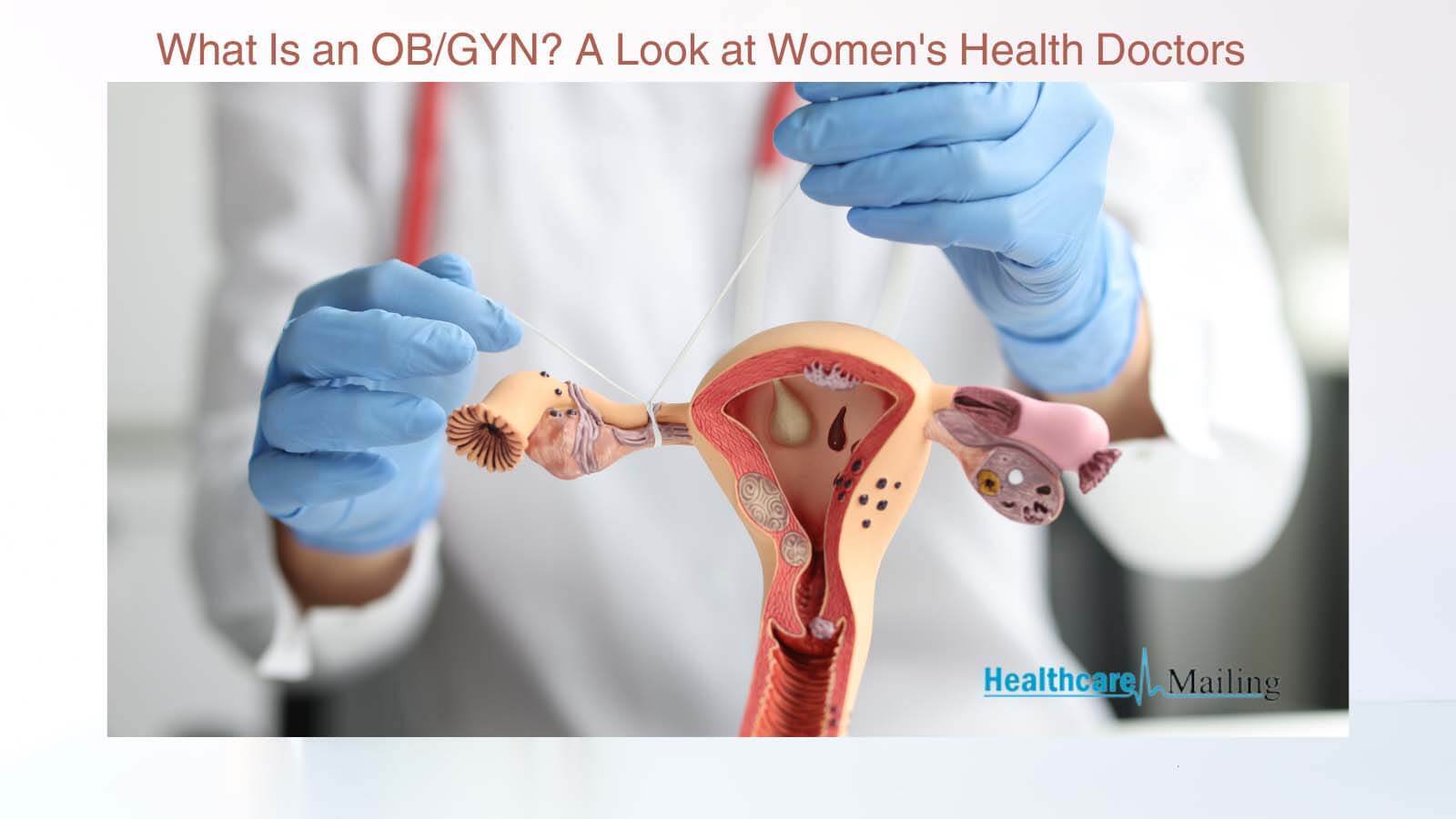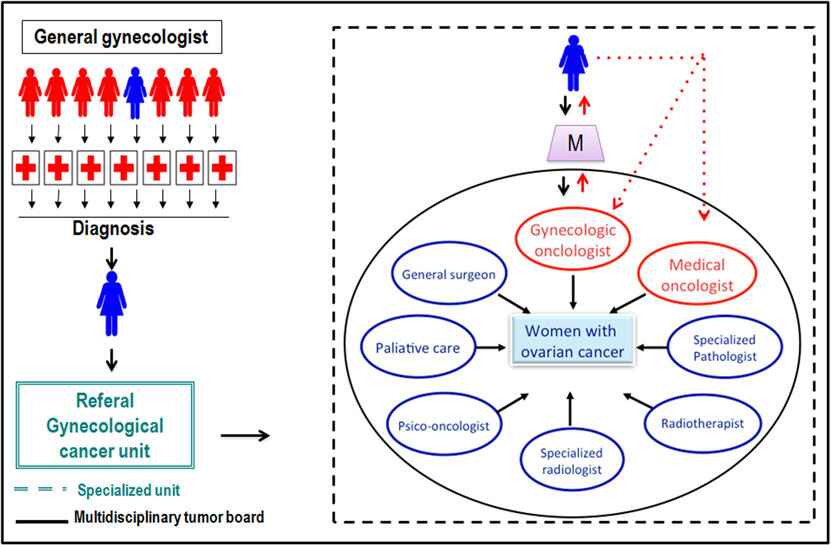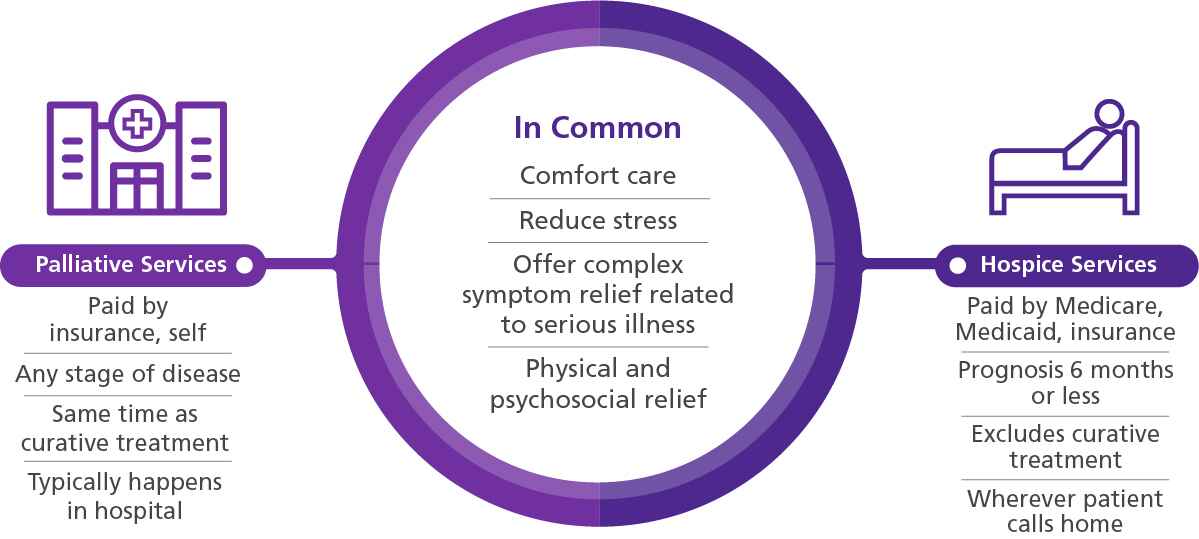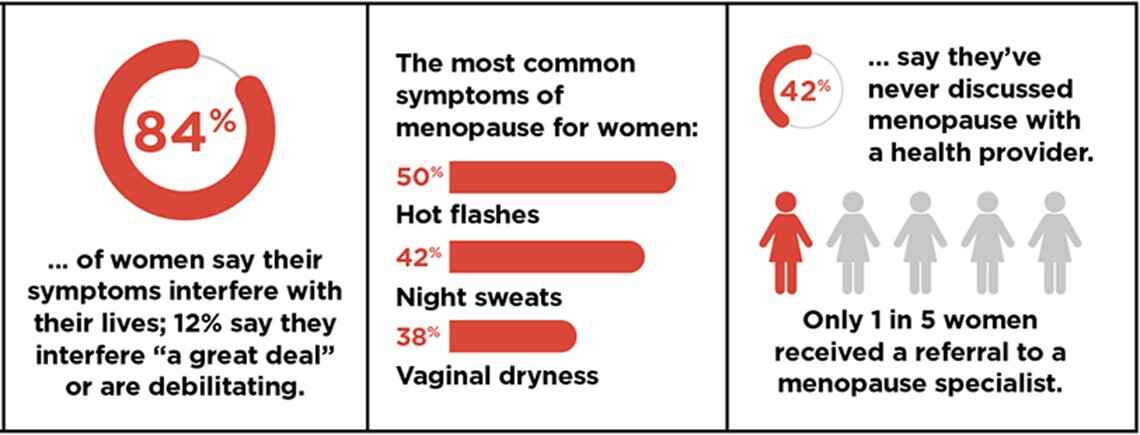In the field of medicine, few fields are as dynamic and crucial to the well-being of half the world's population as Obstetrics and Gynecology (OB/GYN). This multifaceted specialty touches the lives of women in profound ways, from the joyful anticipation of pregnancy to the complexities of reproductive health and the challenges of aging gracefully.
OB/GYN is more than just a branch of medicine; it's a gateway to understanding the intricate and miraculous processes of the female body. It's a field where science meets compassion, and where expertise is honed to address the unique needs of women at every stage of life.
In this guide, we will delve into the heart of OB/GYN, uncovering the mysteries of all the subspecialties that make this field as diverse as it is indispensable. From the delicate art of maternal-fetal medicine to the cutting-edge technologies of minimally invasive surgery, we will uncover the hidden facets of OB/GYN that impact the lives of mothers, daughters, sisters, and friends.
The Ten Subspecialties Of OB-GYN
What is an Ob/Gyn?
An OB-GYN is a specialized doctor with extensive training in both obstetrics (pregnancy and childbirth) and gynecology (women's reproductive health).
These doctors offer a wide range of preventive healthcare services, such as performing pap smears, testing for sexually transmitted infections (STIs), conducting pelvic exams, using ultrasound technology, and ordering blood tests.
People can turn to OB-GYNs for answers to their questions about pregnancy, sexual health, reproductive concerns, fertility issues, and many other related topics.
While the frequency of visits may vary depending on a person's age and changing healthcare recommendations, most women typically see their OB-GYN at least once a year. For some individuals, OB-GYNs serve as their primary healthcare providers, handling their general medical needs.
According to a Montefiore news release, research suggests that a significant number of women regard their OB-GYN as their primary care physician. Surveys conducted among women aged 18 to 40 found that 56 percent visited only an OB-GYN annually. In some cases, even women with chronic health conditions primarily sought care from OB-GYNs.
OB-GYNs Roles & Responsibilities
OB-GYNs have a wide range of roles and responsibilities, including performing various medical procedures and offering routine healthcare services. Some of the key procedures and services they provide include:
- Cesarean Sections: Surgical delivery of a baby when a vaginal delivery is not safe or possible.
- Instrumental Deliveries: Using medical instruments to assist in childbirth.
- Hysterectomy: Surgical removal of the uterus.
- Removing Growths: Removal of growths like ovarian cysts and uterine fibroids through surgery.
- Pelvic Organ Injury Repair: Surgical repair of injuries to pelvic organs, often related to childbirth.
Routine and In-Office Procedures:
- Pap Smears: Screening for cervical cancer.
- STI Tests: Testing for sexually transmitted infections.
- Fertility Treatments: Such as egg retrievals for in vitro fertilization (IVF) or egg-freezing.
- Pelvic Ultrasounds: Imaging to assess pelvic organs and monitor pregnancies.
- Infertility Treatments and Counseling: Assisting individuals and couples with fertility issues.
- Urinary Issue Management: Addressing problems like urinary tract infections and urinary incontinence.
- Anemia Treatment: Managing common conditions like anemia.
- Breast Exams and Health Management: Including mammograms and breast cancer screenings.
General Health Needs:
- Mental Health Screening: Identifying and addressing mental health issues.
- Prescription Filling: Providing prescriptions for common ailments.
- Blood Work: Conducting blood tests to diagnose and manage various diseases.
- Referrals to Specialists: If needed, OB-GYNs refer patients to other medical specialists for specialized care.
Becoming an OB-GYN in the United States: Qualifications and the Pathway
In the United States, individuals who aspire to become OB-GYNs must follow a specific educational and certification pathway, which includes the following steps:
Graduate from Medical School: After completing high school and college, the first step is to attend medical school. Medical school typically consists of four years of education. The initial two years focus on foundational medical education, covering subjects such as human anatomy and physiology.
The final two years involve clinical rotations, during which medical students work alongside experienced doctors, gaining practical experience in various medical specialties, including obstetrics and gynecology.
Residency: After graduating from medical school, individuals enter a medical residency program. During this phase, they practice medicine under the guidance and supervision of senior physicians.
Residency programs provide an opportunity for doctors to select their specialty. For those pursuing OB-GYN, this phase generally lasts four years and offers hands-on experience in a wide range of obstetric and gynecological procedures.
Specialty Examination: Following the completion of a residency program, doctors can take specialty board examinations. OB-GYNs are required to pass a comprehensive oral examination, typically conducted over a full day.
Additionally, after two more years of practice, they must undergo another oral examination, where they answer questions posed by six different medical experts.
Board Certifications: Some OB-GYNs choose to pursue further board certifications in specific subspecialties within the field. This may involve taking additional board examinations.
Ongoing Professional Development: To maintain their medical licenses, OB-GYNs must fulfill state licensure requirements, which often include completing a specified number of continuing education credits each year.
Many OB-GYNs are actively involved in their profession and may have additional qualifications or roles, such as teaching at medical schools, supervising residents, conducting research, presenting at conferences, or supporting patient advocacy organizations.
The Different Subspecialties Under Obstetrics & Gynecology: Salary, Job Outlook, No. Of Practitioners, And More!
According to ACOG, as an OB-GYN, you have the opportunity to explore both board-certified and non-board-certified subspecialties within the field of obstetrics and gynecology. The American Board of Obstetrics and Gynecology (ABOG) officially recognizes several subspecialties, and ABOG conducts certification exams for each of them. OB-GYNs can pursue certification in one or more of these subspecialties. Additionally, OB-GYNs have the option to explore opportunities in specialized areas that may not be officially recognized by ABOG.
Boarded Subspecialties -
Boarded subspecialties are recognized by a governing medical board or institution. Physicians who wish to practice in these subspecialties must complete formal training and examinations administered by the relevant board to become board-certified.
1 Gynecologic Oncology
Roles & Responsibility: Gynecologic oncologists are specialized physicians responsible for diagnosing and treating cancers affecting the female reproductive system. Their duties include accurate diagnosis, developing personalized treatment plans, performing surgical procedures, overseeing chemotherapy and radiation therapy, providing long-term follow-up care, and conducting research to advance cancer treatment methods.
While predominantly surgical in nature, this subspecialty also involves healthcare providers overseeing chemotherapy and actively participating in multidisciplinary care teams. These teams collaborate with experts in pathology, interventional and oncologic radiology, and care coordination to ensure comprehensive patient care.
Average Annual Pay: The base salary for Gynecologic Oncologists typically falls within a range of $308,819 to $428,340, with an average base salary of approximately $355,955.
Job Outlook: According to the U.S. Bureau of Labor Statistics, there was a projected 4% increase in employment for all types of physicians over the course of the ongoing decade.
No. of Practitioners: There is an estimated 1,500 gynecologic oncologists currently practicing in the United States. This number is notably lower than what is needed to effectively treat the approximately 100,000 women who are diagnosed with gynecologic cancers each year.
Best College: 1. Harvard University; 2. Johns Hopkins University; 3. University of Michigan--Ann Arbor
2 Female Pelvic Medicine and Reconstructive Surgery
Roles & Responsibility: FPMRS physicians, also referred to as urogynecologists, specialize in addressing conditions affecting the female urogenital tract, particularly pelvic organ prolapse and incontinence disorders. This subspecialty within OB/GYN primarily involves surgical and procedural interventions. Additionally, FPMRS physicians employ various in-office assessments and treatments to deliver comprehensive care for these conditions.
Average Annual Pay: The average salary for employees at Female Pelvic Medicine And Reconstructive Surgery falls within the range of approximately $78,582 to $101,705.
Job Outlook: According to a report by the National Institutes of Health (NIH), the number of Female Pelvic Medicine and Reconstructive Surgery subspecialists is projected to increase from 1,133 to 1,514 between the years 2015 and 2045.
No. of Practitioners: As of the given data, there were approximately 3,000 positions in the United States for urogynecologists or female urologists whose primary focus was on clinical practice related to female urology and pelvic medicine.
Best College: 1. NYU Langone’s NYU Grossman School of Medicine; 2. Mayo Clinic College of Medicine and Science; 3. University College London.
3 Reproductive Endocrinology and Infertility
Roles & Responsibility: Reproductive Endocrinology and Infertility (REI) subspecialists play a crucial role in diagnosing and managing various reproductive health challenges, such as infertility, recurrent pregnancy loss, and complex endocrine disorders affecting the female reproductive system. Their expertise often extends to providing advanced infertility treatments, including procedures like in vitro fertilization (IVF), preimplantation genetic diagnosis, and intra-cytoplasmic sperm injection (ICSI). These specialists bring advanced techniques and compassionate care to individuals and couples seeking to start or expand their families.
Average Annual Pay: The average salary for Reproductive Endocrinologists in the United States is approximately $277,566 as of September 25, 2023.
Job Outlook: The field of reproductive endocrinology is experiencing growth, with a projected job growth rate of 4 percent for physicians and surgeons between the present time and 2029, as reported by the Bureau of Labor Statistics (BLS).
No. of Practitioners: There are nearly 1,500 board-certified reproductive endocrinologists in the United States, and approximately 1,000 of them are active members of the Society for Reproductive Endocrinology and Infertility (SREI).
Best College: 1. Mayo Clinic College of Medicine and Science; 2. Stanford University; 3. Baylor College of Medicine.
4 Maternal-Fetal Medicine
Roles & Responsibility: Maternal/Fetal Medicine physicians are dedicated to caring for high-risk obstetric patients. They provide expertise and consultation for individuals facing complex challenges, including diagnosed fetal anomalies/conditions, underlying maternal health issues, and severe pregnancy complications. These specialists possess specialized training in advanced ultrasound techniques, which plays a crucial role in diagnosing and managing these conditions, offering both patients and their unborn children the highest level of care and support.
Average Annual Pay: The base salary for a Physician specializing in Maternal/Fetal Medicine typically falls within a range of $420,122 to $573,489, with an average base salary of approximately $487,628.
Job Outlook: The job growth rate for Maternal/Fetal Medicine is expected to remain at an average rate of 4%. This indicates a steady demand for specialists in this field.
No. of Practitioners: There are approximately 1,355 Maternal/Fetal Medicine (MFM) specialists practicing in the United States.
Best College: 1. Duke University; 2. University of California-San Francisco; 3. New York University (Grossman).
5 Complex Family Planning
Roles & Responsibility: Complex Family Planning (FP) subspecialists specialize in comprehensive reproductive healthcare, with a particular emphasis on abortion care and complex contraception counseling. Their role involves a delicate balance between performing procedures and surgeries and providing office-based counseling and care.
They are experts in providing safe and supportive abortion care and offer advanced contraception counseling services to address complex and individualized contraceptive needs. This includes performing various reproductive health procedures and surgeries, such as intrauterine device (IUD) insertions, contraceptive implants, and sterilization procedures.
Average Annual Pay: The average annual salary for a Complex Family Planning specialist is approximately $96,582, with top earners in this field earning up to $121,000.
Job Outlook: Employment of Complex Family Planning specialists is anticipated to grow by 15 percent from 2022 to 2032.
No. of Practitioners: The exact number of Complex Family Planning (CFP) specialists is not readily available. However, it's reported that programs accredited by the Accreditation Council for Graduate Medical Education (ACGME) have graduated approximately 353 fellows in the field of Complex Family Planning.
Best College: 1. University of New Mexico; 2. University of Washington; 3. University of Utah.
6 Hospice and Palliative Medicine
Roles & Responsibility: Hospice and Palliative Medicine focuses on providing compassionate care and support for individuals facing serious illnesses, with a particular emphasis on improving their quality of life and managing symptoms. This specialized field encompasses a wide range of responsibilities, including pain management, emotional and psychological support, communication with patients and their families, and coordinating care to ensure patients' comfort and dignity throughout their journey. Their expertise extends to addressing complex medical, ethical, and emotional challenges, making them integral members of the healthcare team during critical times.
Average Annual Pay: The salary range for a Hospice and Palliative Care Physician job in the United States typically falls within the range of $159,659 to $206,971 per year.
Job Outlook: The current supply of Hospice and Palliative Medicine (HPM) specialists in the U.S. is 13.35 per 100,000 adults aged 65 and older. Future projections for HPM specialists indicate that by 2040, the demand may range from 10,640 to nearly 24,000 physicians in this specialty.
No. of Practitioners: Since 2008, a total of 8,328 American Board of Medical Specialties (ABMS) physicians have achieved subspecialty certification in HPM.
Best College: 1. Emory University School of Medicine; 2. Mayo Clinic College of Medicine and Science; 3. University of Kentucky College of Medicine.
Non-Boarded Subspecialties -
Non-boarded subspecialties are medical fields or areas of expertise within a broader specialty that do not have established formal certification processes overseen by recognized medical boards or institutions. In these subspecialties, physicians may acquire expertise through diverse and non-standardized training pathways, which can include on-the-job experience, self-study, or non-traditional fellowships.
7 Pediatric and Adolescent Gynecology
Roles & Responsibility: Pediatric and Adolescent Gynecology subspecialists specialize in providing gynecologic care to young patients. Their focus encompasses routine care as well as the diagnosis and management of abnormalities related to puberty and development. These specialists offer both office-based and surgical care, demonstrating their expertise in creating a safe and supportive environment for even the youngest patients.
Average Annual Pay: The average salary for employees at the North American Society for Pediatric and Adolescent Gynecology is approximately $67,606 per year, which is equivalent to an hourly rate of around $33.
Job Outlook: The demand for Pediatric gynecologist is projected to grow at a growth rate of 7 percent from 2018 to 2028.
No. of Practitioners: The exact number of Pediatric and Adolescent Gynecology specialists isn't confirmed, as this is a subspecialty of Obstetrics and Gynecology. The number of specialists in this field can vary and may not be readily available through national statistics, as it is a relatively specialized area of healthcare.
Best College: 1. University of Pennsylvania; 2. Harvard University; 3. University of Cincinnati.
8 Menopausal and Geriatric Gynecology
Roles & Responsibility: Menopausal and Geriatric Gynecology is a specialized field within Obstetrics and Gynecology that concentrates on the healthcare needs of women during and after menopause, as well as addressing gynecologic concerns in the elderly population.
These specialists provide comprehensive care for women transitioning through menopause, managing symptoms such as hot flashes, mood changes, and vaginal dryness. They may offer hormone replacement therapy (HRT) or alternative treatments to alleviate discomfort. Additionally, they focus on bone health, particularly addressing the risk of osteoporosis in postmenopausal women, which may involve recommending bone density scans and prescribing medications to prevent fractures. These experts also oversee cancer screening, including mammograms and pap smears, to detect and prevent gynecologic cancers, such as breast and cervical cancer.
Average Annual Pay: The average salary for Gynecology & Menopause Physicians in the United States is approximately $68,803.
Job Outlook: The Bureau of Labor Statistics projects a 1.7% employment growth in the Menopausal and Geriatric Gynecology specialization.
No. of Practitioners: There are approximately 393 Menopausal and Geriatric Gynecology specialists among the total OB/GYNs.
Best College: 1. Baylor College of Medicine; 2. Johns Hopkins University; 3. University of California--Los Angeles.
9 Minimally Invasive Gynecologic Surgery
Roles & Responsibility: Minimally Invasive Gynecologic Surgery (MIGS) physicians specialize in highly skilled surgical techniques to address complex benign gynecologic conditions. Their expertise includes managing severe endometriosis and performing fertility-sparing procedures for minimally invasive treatment of uterine fibroids. These specialists are at the forefront of innovation in Obstetrics and Gynecology, often pioneering cutting-edge surgical techniques and leveraging advanced technology to enhance patient care and outcomes.
Average Annual Pay: In the field of Menopausal and Geriatric Gynecology, the median total salary for individuals in their first year after completing their fellowship is $230,000, with a range of $130,000 to $400,000.
Job Outlook: The job growth rate for Minimally Invasive Gynecologic Surgery (MIGS) surgeons is projected to remain stable at 4%.
No. of Practitioners: A total of 308 Minimally Invasive Gynecologic Surgery (MIGS) surgeons were acknowledged and included in the study as of August 2022.
Best College: 1. University Of Chicago Ob/Gyn; 2. Mayo Clinic College of Medicine and Science; 3. Baylor College of Medicine.
10 Breast Disease
Roles & Responsibility: Breast Disease specialists offer comprehensive breast care, encompassing the surgical management of both benign and malignant breast conditions. While individuals from various surgical backgrounds can enter this field, gynecologists who pursue this specialized training broaden their medical expertise, allowing them to provide more extensive and complex breast care to their patients.
Average Annual Pay: The median salary for this specialty is approximately $164,970.
Job Outlook: The field of Breast Disease specialists is projected to experience a growth rate of 10 percent from 2022 to 2032.
No. of Practitioners: N/A
Best College: 1. Vanderbilt University Medical Center – Nashville, TN; 2. Vassar Brothers Medical Center at Nuvance Health – Poughkeepsie; 3. Washington University School of Medicine.
Ready To Start Your Journey?
As we look to the future, the demand for OB/GYN subspecialists continues to grow, aligning with evolving healthcare needs and demographic shifts. The commitment of these professionals to their respective subspecialties ensures that women receive the highest standard of care at every stage of their lives.
For those considering a journey into the world of subspecialized OB/GYN, we encourage you to delve deeper. Explore the nuances and intricacies of these unique fields, for within them lies the opportunity to make a profound impact on women's health.

















